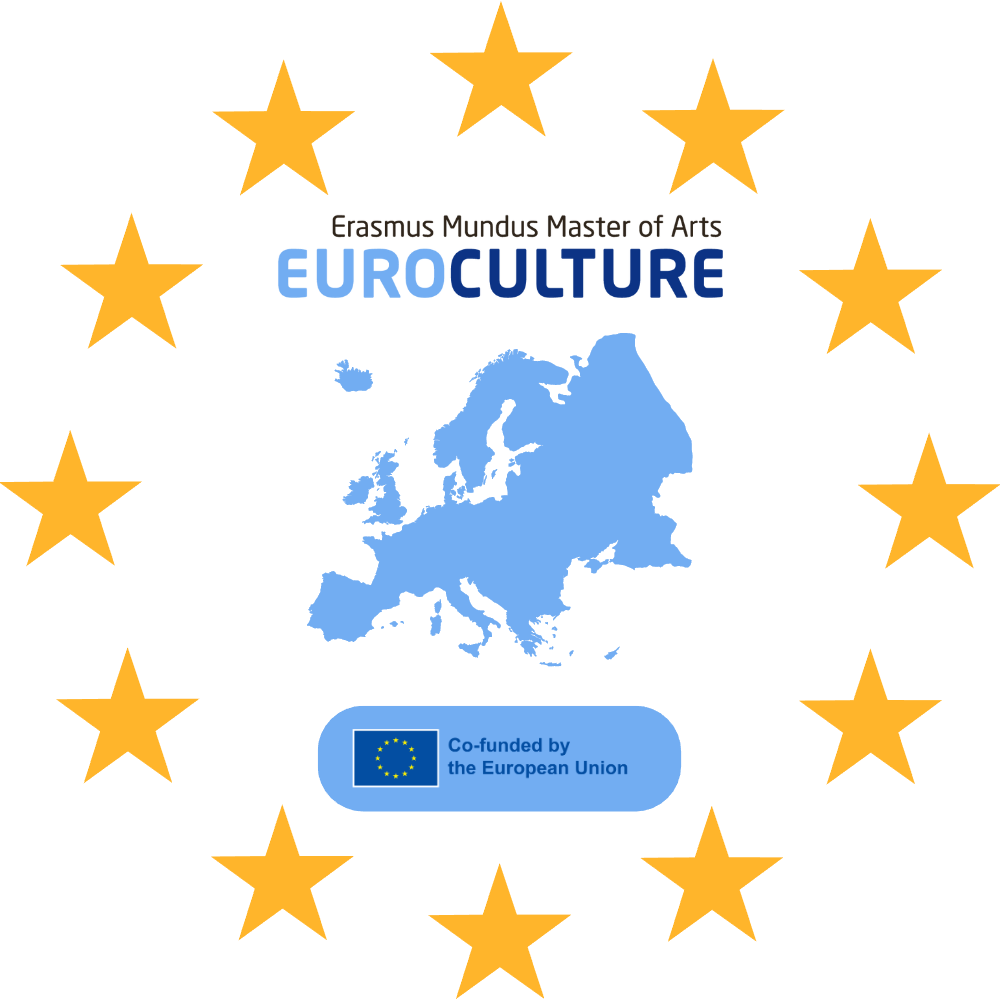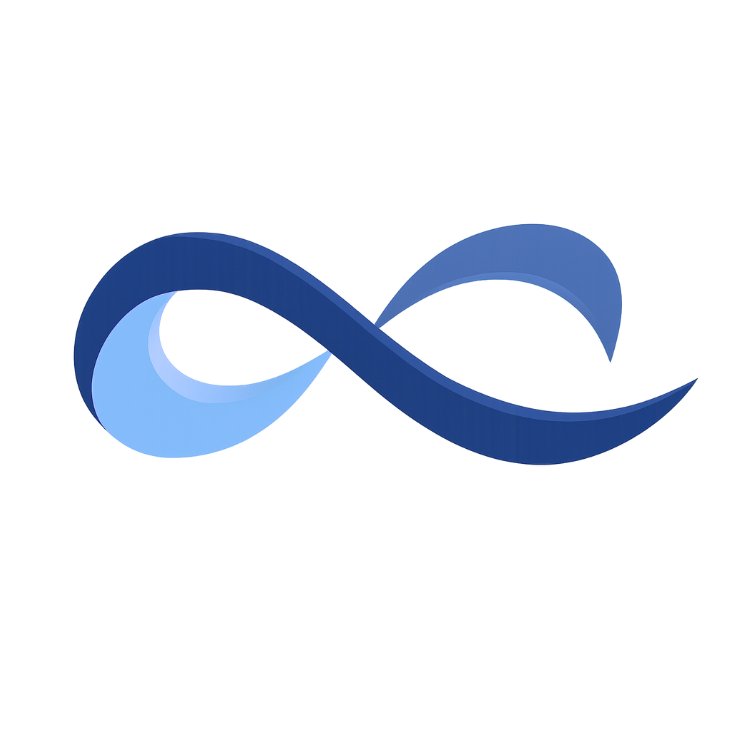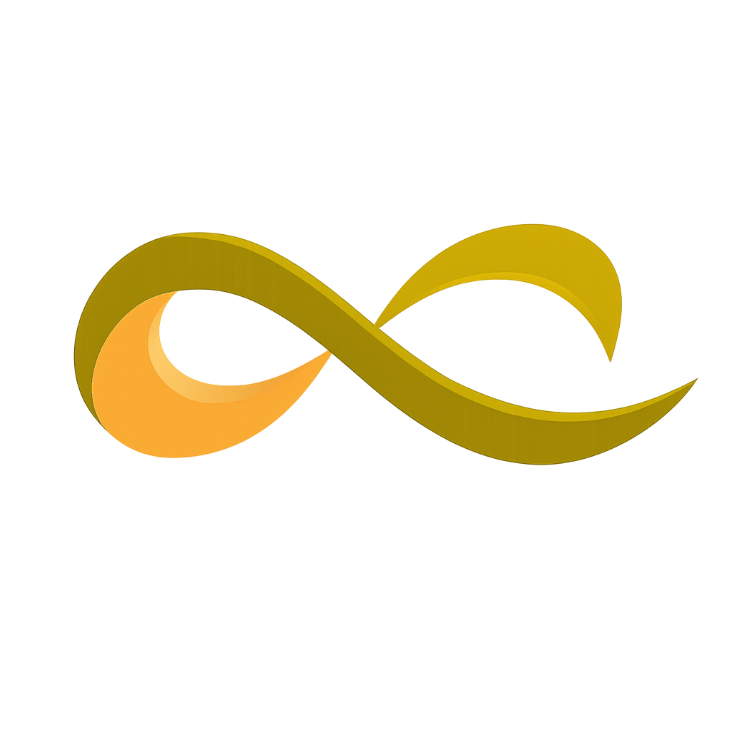
Reimagining Europe’s Future:
Connectivity, Creativity and Care
Euroculture Intensive Programme 2026
Conceptual Framework
At the heart of the Euroculture IP 2026 lies a simple but demanding question: What might Europe become if imagined otherwise? The Euroculture IP 2026 invites participants to move beyond diagnosing Europe’s “crises” or predicting its futures. Instead, the programme cultivates agency, experimentation, and collective imagination, encouraging participants to act, feel and think within uncertainty rather than merely reflect upon it.
To achieve this, the IP introduces imagination as a shared capacity for re-worlding. It is a way of sensing and shaping collective life in the face of complexity, precarity, and possibility. Here, imagination is both method and condition. It is a way of learning that connects political, social, cultural and ecological systems through creative practice and critical reflection.
The IP offers a collaborative space where students join artists, educators, policymakers, and civic actors to rehearse Europe’s possible futures together. With its interdisciplinary foundations and transnational network, Euroculture provides the ideal context for this work: situating scholarship not in abstraction, but within the lived contradictions and aspirations of contemporary Europe.
From Diagnosis to Imagination
Across the continent, institutions, movements, and cultural initiatives are already reimagining Europe from below. Artistic projects have linked creative practice with democratic renewal, experimenting with new forms of transnational citizenship (Sassatelli 2024). Civic movements like Fridays for Future and Extinction Rebellion Europe have mobilised collective action to press for ecological responsibility, making climate justice central to Europe’s democratic imagination (Jordan 2020). At the institutional level, the Conference on the Future of Europe tested participatory and deliberative formats that incorporated citizens’ proposals into EU governance debates (Alemanno et al. 2021).
Meanwhile, research and artistic collaborations across Europe—such as The New European Bauhaus, Reimaging Europe, or Imagination Laboratories—demonstrate how art, culture, and design can function as laboratories for societal transformation (Bottici and Challand 2011).
The IP 2026 connects and amplifies these dispersed practices, creating a shared stage where their energies can converge. By bringing together students and practitioners across disciplines, the programme turns scattered experiments into a collective reimagining of Europe at scale—positioning academic inquiry within a wider effort to reimagine and remake Europe.
Imagination as Infrastructure
At the heart of the IP lies a conceptual framework that weaves together political, social, and cultural perspectives on reimagining Europe. Building on Appadurai’s (1996) insight that imagination is infrastructural, and following Yúdice (2003) and Mould (2018) in understanding cultural practice as the ground of democratic agency and social repair, the IP places imagination at the centre of its inquiry. In conversation with Bottici’s (2014) concept of the imaginal as a shared space of meaning-making, Taylor’s (2004) account of the social imaginary, and Browne and Diehl’s (2018) analysis of the political imaginary, the programme examines how collective visions, narratives, and practices shape the ways Europe can be thought, lived, and re-made. The IP, then, engages with scholars who frame imagination as a site of relational, embodied, and planetary practice.
Muñoz (2009) describes utopia as a horizon—a sense of the “not-yet-here” that flickers within the present. Imagination is a way of feeling toward the future, of noticing moments in everyday life that hint at something better. In this sense, imagining the future is not about prediction but about rehearsal—learning, together, how things might be otherwise. Levitas (2013) builds on this idea by treating utopia as a method. Thinking utopically, for this author, means asking what is missing in the world around us and exploring how it might be different. Miyazaki (2004) also understands hope as a kind of method, an everyday practice of moving forward through uncertainty. When familiar ways of life or meaning collapse, Lear (2006) calls for radical hope: an openness to futures we cannot yet fully imagine. Read together, these thinkers show how imagination and hope are ways of acting, sensing, and staying open to possibility, even in difficult times.
Haraway’s (2016) call to “stay with the trouble” offers a way of thinking that accepts complexity rather than seeking to overcome it. This approach resonates with recent work in planetary politics, where scholars argue that the Earth must be understood as an active participant in political life. Chakrabarty (2021) distinguishes the planetary from the global, showing how human histories are now inseparable from the material processes of the Earth itself. Building on these ideas, the Planet Politics Manifesto (Burke et al., 2016) urges to confront planetary crisis we need to rethink core ideas of sovereignty, ethics, and responsibility. Taken together, these perspectives move beyond human-centred politics and open space for cultural and political imaginaries that recognise interdependence, vulnerability, and shared planetary life.
Finally, Akómoláfé (2020) suggests that imagination sometimes begins by slowing down. In times of crisis, we are invited to pause, listen, and move with the world’s other rhythms instead of trying to control them. This idea connects to slow politics: an approach that values reflection, care, and collaboration over speed and competition. Slowness, in this sense, is not inaction but a different way of acting—one that makes space for thought and connection. Lilja and Vinthagen (2018) expand this into the idea of slow or everyday resistance, where small, quiet acts—delays, hesitations, small refusals—create room for agency within restrictive systems. Together, these thinkers show that change does not always arrive through grand gestures or rapid movements. Sometimes it grows slowly, through attention, patience, and the ongoing effort to live differently in the present.
From Imagination to Practice
These perspectives position imagination as a bridge between the political, social, and cultural dimensions of European life. The IP engages imagination both as method and condition—a mode of inquiry that is expressed through three guiding dimensions:
Connectivity — rethinking political and institutional relations as dynamic, interdependent networks.
Creativity — reworking Europe’s cultural and aesthetic archives to envision plural futures.
Care — cultivating attention, repair, and solidarity as foundations of democratic coexistence.
The IP transforms these principles into a shared method: a way of learning, speculating, and acting together. To reimagine Europe is to insist that it remains unfinished—and that its futures must be collectively practiced, again and again, until new forms of solidarity, democracy, and belonging come into view.
Practice
At the heart of the IP lies rehearsal. We approach rehearsal not as preparation for a final performance, but as a collective method for acting, sensing, and thinking within uncertainty. Rehearsal is a space of trying out rather than carrying out: a process where participants test futures that are incomplete, provisional, and contested. Drawing on Azoulay et al. (2022), the IP treats rehearsal as a refusal of linear progress narratives and inherited scripts of Europe as destiny. Instead, it opens the floor to improvisation, iteration, and dissent—to futures that dominant frameworks might otherwise foreclose.
Political Rehearsal
Rehearsal is political because it allows participants to experiment with forms of collective life. Politics here is not a finished architecture but an ongoing negotiation: a practice of relating, deciding, and belonging together without the promise of closure. Within the IP, this means staging temporary publics—forums, assemblies, or performances—where participants can test alternative modes of cooperation, accountability, and solidarity. Through these experiments, the group rehearses how institutions and communities might act differently when uncertainty is treated not as failure but as condition.
Epistemic Rehearsal
Rehearsal also challenges how knowledge is produced. It unlearns the expectation that understanding must be fixed or universal, foregrounding instead the knowledge that arises through doing—through embodied practice, collective improvisation, and revision. In this mode, failure becomes information and speculation becomes method. Participants might prototype speculative institutions of care, draft future constitutions, or design imaginative responses to ecological and social fragility. Learning takes place through movement, reflection, and adjustment, revealing how Europe can be studied not only as an object but as a practice in motion.
Aesthetic Rehearsal
Rehearsal is aesthetic in its invitation to play, repeat, and transform. It dissolves the divide between finished work and ongoing process, between analysis and invention. Artistic and performative approaches—writing, design, sound, or spatial interventions—become tools for exploring how imagination operates collectively. Here, creativity functions as a form of inquiry: a way to sense and stage possible worlds before they are realized. Participants may create gestures, artefacts, and scenarios that test how Europe feels, looks, or sounds when reimagined as interdependent and plural.
Rehearsing Europe
To rehearse Europe together is to insist that Europe remains unfinished. Its institutions, narratives, and identities are provisional. Its futures must be practiced again and again until new forms of democracy, solidarity, and care come into view. The IP asks participants not merely to observe Europe’s transformations, but to inhabit them, to explore how imagination itself can become an infrastructure of political and social repair.
Practicing in Groningen
Situated in Groningen, the IP becomes a literal rehearsal space for Europe: a site where analysis, experimentation, and collective invention intersect. Participants will move between seminars, collaborative labs, and public enactments—working with artists, civic actors, and policymakers on pressing challenges. Geopolitical realignments call for new forms of connectivity; ecological collapse demands practices of care; and the fragility of democracy invites creative rehearsal. Through these encounters, the IP transforms theory into method and imagination into shared practice.
Pedagogy
The IP’s pedagogy is built around imaginations and rehearsals as both method and learning environment. The programme is structured around three interrelated modes of learning: 1) Seminars, 2) Collaborative Labs, and 3) Public Enactments, complemented by 4) Individual Research Papers (‘‘The IP paper’’) that extend these collective experiments into reflective inquiry.
1) Seminars
Introduce participants to Europe’s transformations through the situated lens of Groningen. The city functions as a living classroom—a microcosm through which Europe’s histories, contradictions, and futures can be experienced directly. Each sub-theme of the IP—Connectivity, Creativity, and Care—is explored through Groningen’s local realities. Participants are encouraged to think how the local rehearses the European, and how Europe is imagined through everyday spaces of connecting, creativity, and care.
2) Collaborative Labs
The Collaborative Labs form the core of the IP’s pedagogical experiment. Here, students work in small, transdisciplinary groups alongside artists, educators, and policymakers to develop speculative artefacts, performances, or scenarios. The Labs operationalize rehearsal as an educational method: trial, error, and adaptation are not obstacles but modes of learning. Labs connect directly to Groningen’s civic and ecological context through fieldwork and co-creation.
3) Public Enactments
The IP culminates in Public Enactments—a symposium and exhibition where participants share provisional outcomes with wider audiences. These events transform the IP into a temporary public institution: a space where the boundaries between research, art, and civic engagement blur. Projects, performances, and artefacts will be documented in an open-access portfolio, extending the reach of the programme into academic, cultural, and policy networks. The goal is not closure but continuation—to keep Europe’s rehearsal in motion beyond the summer school itself.
4) Research Papers (the ‘IP Paper’)
Participants are also invited to translate their experience into individual research papers, treating writing as another form of rehearsal. Papers may “unlearn and unsettle” dominant narratives of Europe or “imagine and trace” speculative alternatives. Students can investigate unfinished political or cultural projects, suppressed imaginaries, or experimental visions of belonging and solidarity. These papers combine analytical rigor with creative speculation—linking the collective rehearsal of Europe to each participant’s disciplinary and intellectual journey.
Research paper contributions should engage with the three guiding sub-themes of the IP:
Connectivity: Politics and Institutions,
Creativity: Art and Cultural Analysis
Care: Societies.
Theme Statement
Europe has never been a finished project. It has unfolded through negotiation, crisis, and reinvention rather than through a single founding myth. Today, amid rising authoritarianism, geopolitical shifts, ecological collapse, and institutional fatigue, this unfinished condition is no longer hidden: it defines the European present. What looks like fragmentation may also signal a capacity to adapt, experiment, and imagine otherwise.
The Euroculture IP (2026) takes this openness as both a challenge and an opportunity. Rather than diagnosing “Europe’s crises,” we will rehearse its possible futures: testing how care, solidarity, and imagination can reshape collective life under conditions of uncertainty.
Reading list for the general theme
Anderson, Ben. ‘‘Emergency futures: Exception, urgency, interval, hope.’’ The Sociological Review 65, no. 3 (2017): 463-477.
Cantó-Milà, Natàlia, and Swen Seebach. "Between temporalities, imaginaries and imagination: A framework for analysing futures." European Journal of Social Theory 27, no. 2 (2024): 298-313.
Chakrabarty, Dipesh. "Planetary crises and the difficulty of being modern." Millennium 46, no. 3 (2018): 259-282.
Lilja, Mona, and Stellan Vinthagen. "Dispersed resistance: unpacking the spectrum and properties of glaring and everyday resistance." Journal of Political Power 11, no. 2 (2018): 211-229.
Soniewicka, Marta. "The politics of hope: Utopia as an exercise in social imagination." In Utopian Thinking in Law, Politics, Architecture and Technology, pp. 96-115. Edward Elgar Publishing, 2022.





